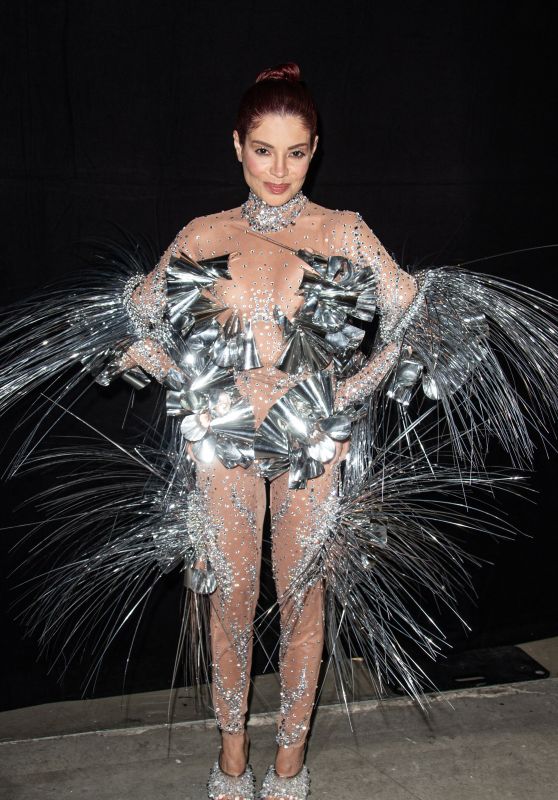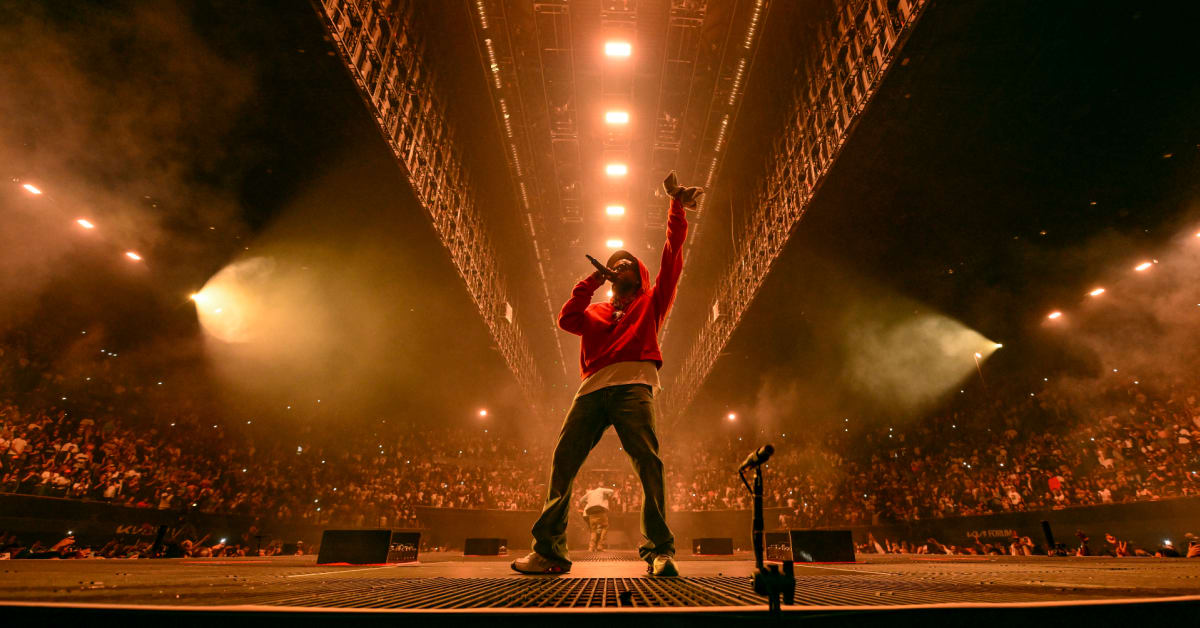Pros
- A well-paced story of burgeoning rebellion
- Rebecca Ferguson's lead performance
- Steve Zahn's scene-stealing supporting turn
Cons
- An occasionally frustrating twin-story structure
- An uneven balance in its later episodes
- A central setting that still feels too claustrophobic
When it premiered last year, Silo quickly emerged as the Platonic ideal of an Apple TV+ drama. The dystopian thriller is, like a lot of the shows on its streaming service, a polished, expensive prestige production centered around a recognizable, well-known movie star. Unlike many of Apple’s star-led series, though, Silo had the added benefit of being the first project to give Rebecca Ferguson, a talented actress who has spent an inordinate amount of her big-screen career playing the second lead to a male co-star, the starring role in a high-brow genre production that she’s long deserved. Ferguson, for her part, turned in one of the most quietly assured, commanding lead TV performances of 2023.
Her confidence was, fortunately, matched by Silo. Created by Justified showrunner and Speed screenwriter Graham Yost, Silo‘s first 10 episodes were — above all else — effortlessly watchable. The series seemed immediately aware of its own identity, and that resulted in its first season lacking the kind of shaggy aimlessness that has become all too common in TV’s prestige streaming era. The sci-fi drama’s first season felt focused, propulsive, and atmospheric. It was written with a confidence that made the viewer feel safe going along for the ride. In its second season, which premieres on Apple TV+ this week, the series returns with the same level of unifying focus and confidence — even as it boldly fractures and bifurcates its own story.
 Apple TV+
Apple TV+Silo returns in the immediate aftermath of its first season’s conclusion. It follows Ferguson’s exiled Juliette Nichols as she wanders through a radiation-soaked landscape of craters, all of which house entrances to silos not unlike the one Juliette spent most of her life in. Realizing that she has little time before her intentionally faulty bio-suit runs out of air, Juliette navigates her way through the open entrance to an abandoned silo, the history of which is laid out with beautiful efficiency in Silo season 2’s cold open. As Juliette explores her new, decrepit home, she is surprised to cross paths with Solo (Steve Zahn), an eccentric, psychologically wounded survivor who is both desperate for the human company Juliette’s presence provides and terrified of reciprocating her honesty and openness.
When Juliette learns how Solo’s silo fell to ruin, she becomes eager to return to her own and warn those still inside. Doing so isn’t nearly as easy as she hopes, and Silo dedicates around half of its second season to both Juliette and Solo’s growing connection and their efforts to get her home. Its other half, meanwhile, charts the fallout of Juliette’s successful walkout at the end of Silo season 1, which creates even harsher lines of division within her home silo’s already divided departments and stokes the flames of a potential rebellion. Silo inevitably loses some of its star power whenever Ferguson isn’t onscreen, but the series’ continued focus on the turbulent society it spent so much of its first season building gives originally supporting stars like Tim Robbins, Avi Nash, Shane McRae, and Remmie Milner the chance to step up and shine on their own. Robbins, in particular, dominates much of Silo season 2.
After spending most of the series’ first season masquerading as an uninvolved tech head, Robbins’ Bernard gets to emerge this time around as his fully villainous, manipulative self. His desire to maintain authoritarian control of his silo not only proves to be more difficult than he imagines, but it also leads Bernard back to his former IT shadow, Judge Meadows (a standout Tanya Moodie), and creates new tensions between him and his most loyal servant, Robert Sims (Common). At times, Silo season 2 makes the mistake of focusing so much on Bernard’s chess-like war against Knox (McRae) and Shirley (Milner), the de facto heads of Juliette’s mechanical division, that it ends up not giving Ferguson the attention and screen time she deserves. For the most part, however, Yost and his writers successfully justify the season’s twin-story structure by filling its Bernard-led half with more than enough intrigue, deceit, and tension.
 Apple TV+
Apple TV+Silo‘s latest balancing act does get uneven in its later episodes, and one late-season twist in Juliette and Solo’s story introduces a new subplot that, at first, feels jarringly and tonally out of place. The series ultimately benefits from this twist’s inclusion, though, by using it to give Zahn, Silo season 2’s preeminent scene-stealer, the kind of moving, substantial material that a character actor of his caliber deserves. He and Ferguson are doing two completely different things in Silo season 2; the latter is leaning even further into her stoic, Eastwood-esque screen power while Zahn feels like an unbridled ball of nervous energy in every scene. Together, the two create one of Silo‘s most compelling relationships. That makes the show’s sometimes long detours away from their story occasionally frustrating to grapple with, especially given how their exploration of Solo’s ruined home provides the series with a much-needed chance to expand its scope.
Silo‘s first season is a purposefully insular conspiracy thriller — one driven by the urge to uncover whatever secrets lie beyond its central setting’s concrete walls. However, once its protagonist walked beyond those barriers in its season 1 finale, Silo needed to find a way to grow in order to keep itself from becoming stale and repetitive. The series’ season 2 premiere works primarily for this reason. It is a surprisingly quiet hour of pure exploration that wisely trusts both Yost’s writing and the power of Ferguson’s largely interior performance to imbue it with meaning and weight. While it lets Juliette and Solo expand its canvas, though, Silo‘s Bernard-centric story of a burgeoning rebellion makes the scenes set in its original underground home feel more suffocatingly claustrophobic this season than they did in the show’s first. These dueling energies sometimes provoke frustration in the viewer, but they mostly complement each other throughout Silo season 2.
 Apple TV+
Apple TV+Boasting a seemingly larger budget than its first, Silo‘s second season ups the ante on the action and spectacle. Using the new, flooded landscape of Solo’s home, the season even invests time in a handful of underwater sequences that are executed so seamlessly you almost forget the high level of technical craftsmanship they demand. To be fair, that’s a problem Silo itself practically invites. It is a show that makes serialized, digestible genre storytelling look easy, and it’s no less watchable than it was when it premiered last May. In fact, Silo seems even more assured now in the strength of its many parts, and for good reason. It remains one of the most capably made sci-fi shows on TV right now, and its reliability inspires a level of faith among viewers that is both hard to come by and easy to take for granted. To do the latter would be a mistake.
New episodes of Silo season 2 premiere Fridays on Apple TV+. Digital Trends was given early access to the season’s first nine episodes.




















 English (US) ·
English (US) ·